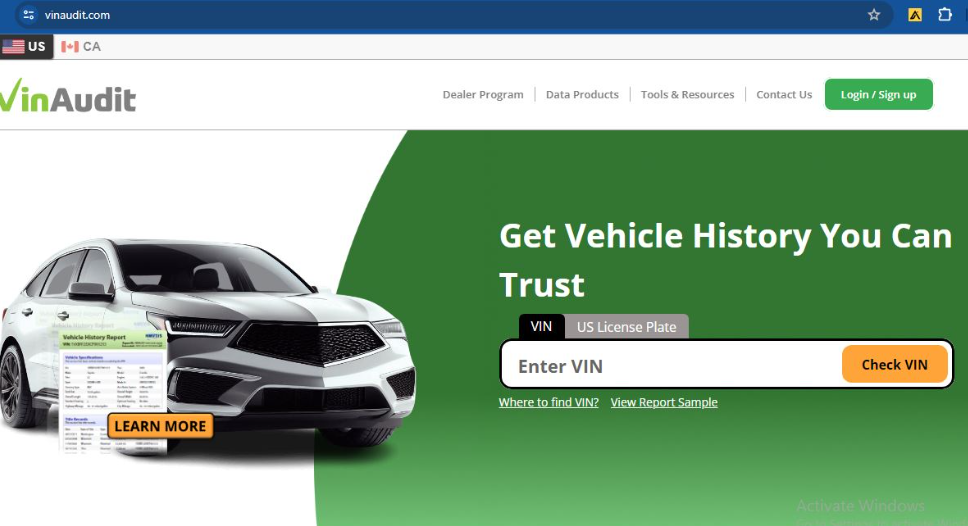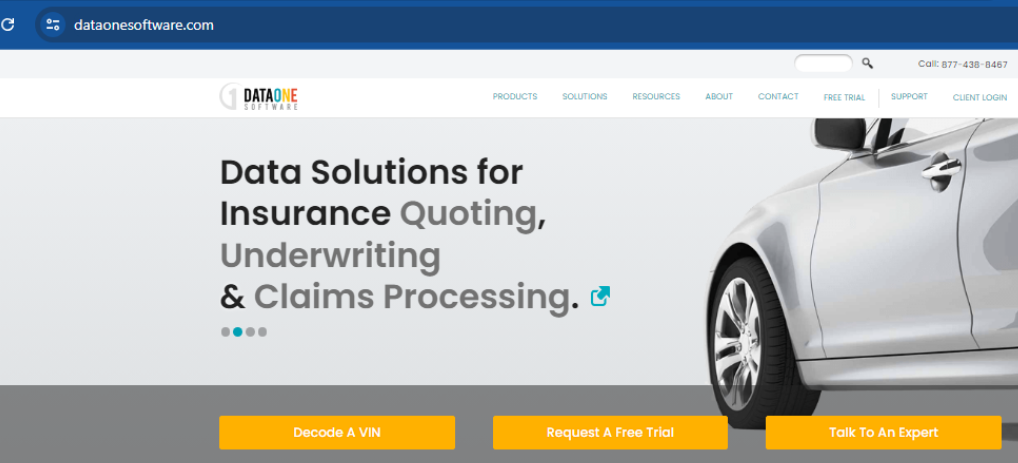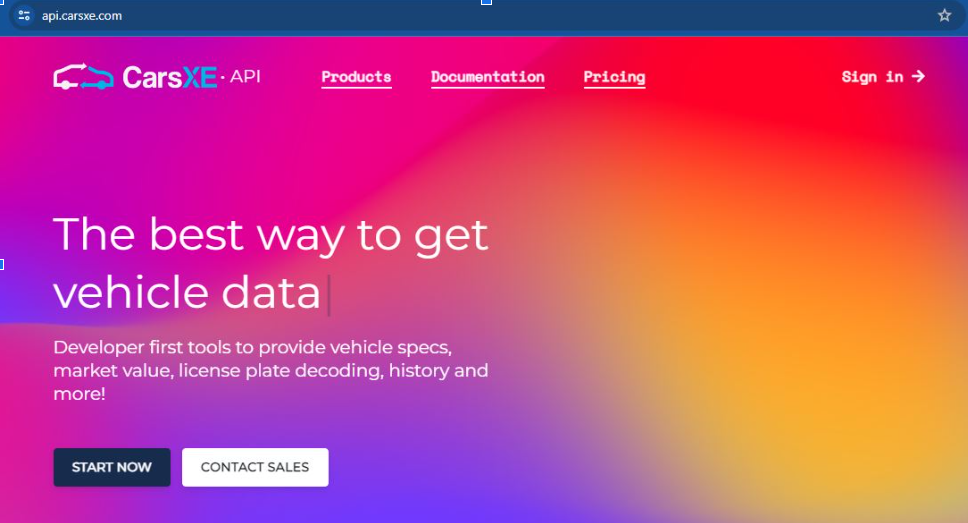Old School Vehicle Data Providers vs Car API Data Tech

Introduction
The management of vehicle data has undergone massive transformation over the years. Initially, the industry relied heavily on manual processes and physical records to track and manage vehicle information. This traditional approach, while comprehensive, was often slow and prone to errors. The advent of digital technology has brought about a shift towards more efficient, real-time data management solutions. Modern Car API technology represents the latest advancement in this field as it offers a stark contrast to the old-school methods.
Vehicle data plays a critical role in today's automotive industry. It underpins everything from manufacturing and maintenance to sales and insurance. Accurate and timely data can enhance decision-making, improve customer service, and drive innovation. As the automotive world continues to evolve, vehicle APIs will remain a key factor in achieving success in the automotive industry.
This article will walk you through the old school Vehicle Data providers compared to the Car API Tech.
Old School Vehicle Data Providers
Definition
Traditional vehicle data providers are organizations that have historically collected, stored, and managed vehicle data using manual processes and physical records. These providers include various stakeholders in the automotive industry such as dealerships, manufacturers, and service centers. They rely on human input and physical documentation to maintain records of vehicle information, including sales, maintenance, and ownership history.
History
The concept of vehicle data management dates back to the early days of the automotive industry when manufacturers and dealerships needed to track sales and service records. Initially, this was done using paper-based systems, with clerks manually entering data into ledgers and filing cabinets. Over time, these methods evolved to include the use of standalone databases and local computer systems, which, while an improvement, still required significant manual input and were prone to errors.
Data Collection Methods
Traditional data providers primarily rely on manual data entry. Employees at dealerships, manufacturers, and service centers record vehicle information by hand or input it into basic computer systems. This method requires meticulous attention to detail and significant time investment.
Physical records such as paper files, ledgers, and printed reports are a hallmark of old-school data providers. These documents are stored in filing cabinets and archives, making retrieval and analysis a cumbersome process. Over time, some of these records have been digitized and stored in simple databases, yet they still require manual updates and maintenance.
Data is collected from various industry players such as dealerships, manufacturers, and service centers
Advantages of old school Vehicle Data
Traditional data providers have long-standing relationships with key industry players. These established connections allow them to gather comprehensive and detailed data over extended periods, providing a rich historical context that newer methods might lack.
Years of accumulated data give traditional providers an extensive repository of historical information. This data is valuable for trend analysis, long-term studies, and understanding the evolution of the automotive market.
Disadvantages
Manual data entry and the maintenance of physical records are inherently slow and labor-intensive. This inefficiency can lead to significant delays in data processing and availability, hampering decision-making and operational efficiency.
Traditional methods do not support real-time data updates. Information is often recorded after the fact, leading to delays in availability and potential discrepancies between the recorded data and the current status of a vehicle.
Manual processes are more susceptible to human error. Mistakes in data entry, lost or damaged physical records, and inconsistent updates can result in inaccurate or outdated information. This lack of reliability can negatively impact the quality of insights drawn from the data.
Car API Tech
Car API technology represents a revolutionary approach to vehicle data management. Unlike traditional methods, which rely on manual processes and physical records, Car API technology leverages digital interfaces to access and process data in real-time. This technology allows for seamless integration with modern digital systems, facilitating the exchange of information between vehicles, IoT devices, and connected platforms.
What is Car API Technology?
Car API technology encompasses a range of application programming interfaces (APIs) specifically designed to interact with vehicle data. These APIs enable developers to access a wealth of information, including vehicle diagnostics, performance metrics, and location data, among others. By providing standardized interfaces for data exchange, Car APIs simplify the process of integrating vehicle data into third-party applications and services.
Brief Overview of its Development
The development of Car API technology has been driven by advancements in digital connectivity and the Internet of Things (IoT). As vehicles become increasingly connected, there has been a growing demand for standardized methods of accessing and sharing vehicle data. Car manufacturers, software developers, and third-party service providers have collaborated to develop and implement Car API solutions, resulting in a more streamlined and efficient approach to vehicle data management.
Data Collection Methods
- Real-time Data Streaming: Car APIs enable real-time streaming of vehicle data, allowing for instant access to critical information. This continuous flow of data enables timely decision-making and facilitates proactive maintenance and monitoring.
- Integration with Modern Digital Systems: Car APIs seamlessly integrate with modern digital systems, including IoT devices and connected cars. This integration enables vehicles to communicate with other smart devices and platforms, unlocking new opportunities for innovation and efficiency.
Advantages of advanced Car APIs
- Speed and Efficiency in Data Processing: Car APIs streamline the process of accessing and processing vehicle data, resulting in faster response times and improved efficiency.
- Real-time Updates and Access to the Latest Information: Car APIs provide real-time access to the latest vehicle information, allowing for instant updates and insights into vehicle performance and status.
- Improved Accuracy and Reliability: By leveraging standardized interfaces and digital connectivity, Car APIs offer improved accuracy and reliability compared to traditional data management methods.
Disadvantages
- Dependency on Internet Connectivity and Digital Infrastructure: Car API technology relies on internet connectivity and digital infrastructure to function effectively. Poor connectivity or infrastructure limitations can hinder the reliability and performance of Car API solutions.
- Potential Security and Privacy Concerns: The digital nature of Car API technology introduces potential security and privacy concerns. Unauthorized access to vehicle data or security breaches could compromise sensitive information and undermine trust in the technology.
Difference: Between the old school Vehicle Data providers and the modern Car API tech
Comparing old school vehicle data management to modern Vehicle API technology reveals a fundamental shift from manual processes to real-time data access. While traditional methods offer historical data and industry relationships, they often lack accuracy and efficiency due to manual input and outdated information. In contrast, Vehicle API technology ensures unparalleled accuracy and reliability by delivering up-to-date data instantly. This real-time access not only enhances decision-making but also accelerates business operations. Despite potential upfront costs, the long-term benefits of API technology, including efficiency and adaptability, position it as the future standard for vehicle data management.
Real life examples
Old School Vehicle Data Providers:
Classic Cars Inc.:
Classic Cars Inc. relies on manual processes and physical records to manage their vintage car inventory. Each car's details, such as make, model, year, and mileage, are recorded in paper files or spreadsheets. When a customer inquires about a specific vintage car, the staff manually search through their records to provide information, which can be time-consuming and prone to errors.
Smith's Auto Repair Shop:
Smith's Auto Repair Shop maintains vehicle maintenance records manually for their customers. When a car comes in for service, the mechanics record the service history, parts replaced, and repairs performed in paper logbooks. When customers request their service history, the staff manually retrieve and compile the information from these logbooks, which can lead to delays and inaccuracies.
Modern Vehicle API Providers :
Vinaudit:

VinAudit.com is a startup in the vehicle history marketplace, founded by David Wu in 2011. A first level consumer access provider for the National Motor Vehicle Title Information System, offering reports at a fraction of traditional costs. After launching in 2011, VinAudit.com has been providing vehicle reports to consumers, dealers and industry partners. VinAudit.com checks for the most serious problems for automobiles, classic cars, buses, trucks, motorcycles, recreational vehicles, motor homes, and tractors. A VINAUDIT report includes the information like VIN decode info, title history, junk and salvage records and Insurance records.
Dataonesoftware:

Dataonesoftware is an API provider that offers an all-inclusive set of automotive data and VIN decoder products that provide dynamic content. Their products include : Vehicle data and vin decoding, Vehicle shopping solutions and Vehicle images and overviews. Since DataOne Software was acquired by Dominion Enterprises in 2007, its dealer products and services have naturally evolved to align with and enhance the various other automotive divisions under Dominion's umbrella. Today, DataOne Software focuses solely on sourcing, warehousing, and producing automotive content.
CarsXE:

CarsXE APIs are restful APIs that give you access to millions of vehicle history records, specifications, five year ownership cost and market value data at an extremely affordable rate. From tracking vehicle analytics in your company, energy, insurance, media, ride hailing and hospitality the use cases grow the more you think. The tools provided give you insights into vehicle specifications, market value, ownership cost, vehicle history and quick lookups. The robust API utilizes a variety of sources for your ease of use.
Test out the API; it’s free to start! Documentation is very simple for any development team to build something impactful.
Join the automotive industry and collaborate with one of the most successful modern Vehicle API tech providers. Visit our portal site CarsXE.com today